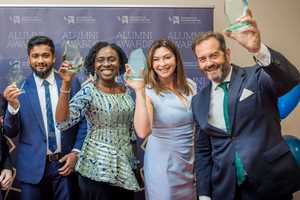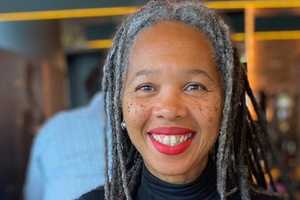It takes a remarkable individual to single-handedly establish a governmental department, amend constitutions, and improve the lives of an entire marginalised community. Yet, that is exactly what Jenny Victory has accomplished. Her humility at her achievements is matched only by the force that has driven her: a mother’s unwavering love. We spoke to Jenny to uncover the extraordinary journey that led to her groundbreaking achievements.
A childhood with challenges
Born and raised in Gibraltar, Jenny’s early years were shaped by a rare form of arthritis that confined her to a wheelchair. This experience ignited an interest in special educational needs, laying the foundation for her future career. “I was very lucky,” she reflects. “I received the correct medical treatment and I was much better by my teenage years, but that time in a wheelchair gave me a deep understanding of the challenges faced by people with disabilities.”
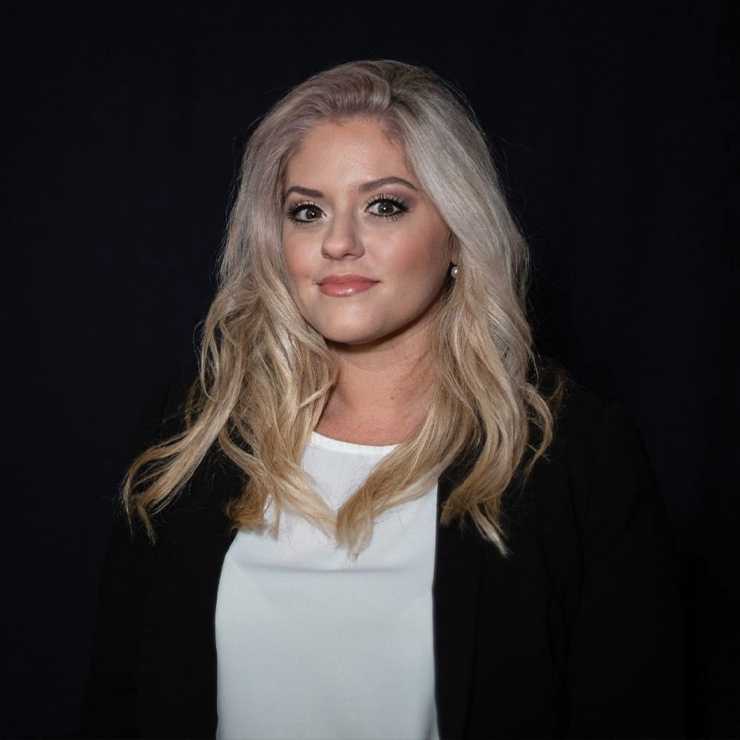
Determined to turn her lived experience into a meaningful career, Jenny set her sights on becoming an educational psychologist. Gibraltar had no university at the time, so she had to pursue her studies in the UK. After a road trip with her family to explore various institutions, she fell in love with the University of Wolverhampton. The moment she stepped onto campus, she knew she had found the place that would shape her future.
“I needed to get the right qualifications to make a difference,” she explains. “Wolverhampton had the perfect course – a blend of psychology and special needs and inclusion studies.”
She graduated in 2008 and, after completing a PGCE in Canterbury, returned to Gibraltar as a teacher. Initially, her ambition was to become an educational psychologist, but her love for teaching took over. She found herself managing the learning support facility in a secondary school and quickly rose to a leadership position.
A mother’s fight for change
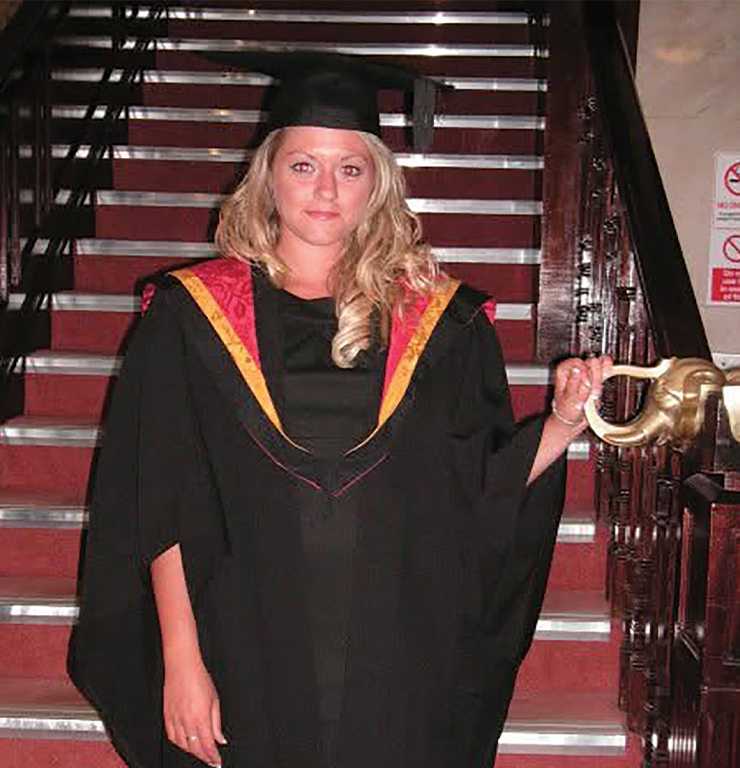
Life took an unexpected turn when Jenny’s son, Lewis, was born. Non-speaking and with complex medical needs, at nearly 11 years old, Lewis requires constant care and specialised support. As an educator, Jenny understood the theories behind special needs education, but as a mother, she saw first-hand the gaps in practice.
Determined to bridge these gaps, she dove back into what she’d learned during her studies: scrutinising legislation and Gibraltar’s policies compared to the UK. She attempted to work through official channels – the Department of Education, the Minister for Education – but then, Covid-19 struck, and everything changed.
During lockdown, Jenny found herself managing 48 staff members and teaching via an online platform children with special educational needs from ages 11 to 19 in Gibraltar.
At the same time, she was working from home, caring for Lewis, while her husband, a police officer, worked long shifts. To add to the pressure, she was part of a newly formed parents’ association of the local special school, where her son was a pupil, and a committee member of the charity, Little Smiles, which was advocating for children with disabilities.
Seeing the dire need for action, Jenny and three other mothers started rallying ministers. Through persistent lobbying, they secured small but crucial victories – designated parks open for those with disabilities, special passes to allow movement during lockdown, and better support for families struggling with isolation. “I did that all as a mother,” Jenny says, “but I’m so thankful for the background I had from the University of Wolverhampton to see which barriers we could push, and which we couldn’t.”
A meeting that changed everything
The breakthrough came in May 2021 when Jenny and her fellow campaigners met with Gibraltar’s head of government, the Chief Minister.
“The four of us mothers, rocked up to Number Six, Convent Place (the equivalent of Number 10 Downing Street), and presented to the Chief Minister and a boardroom full of ministers. We proposed the need for a centralised office in government to deal with all types of disabilities. We needed a watchdog for disabilities, making sure that all government departments were doing what they were meant to be doing; for somebody to actually rally for disability related issues; we needed a national disability strategy; and to extend and ratify the UN Convention of the Rights of Persons with Disabilities to Gibraltar.”
Instead of merely listening, the minister offered her a role in government – to set up and lead an entirely new department for disability rights. At first, she hesitated. “I was a teacher, a mother. My priority was Lewis and my pupils. But the Chief Minister gave me two weeks to think about it. On September 1, 2021, Jenny started her new role – working directly under the Chief Minister to open Gibraltar’s first disability office and create Gibraltar’s first ever National Disability Strategy.
Building a future for disability rights
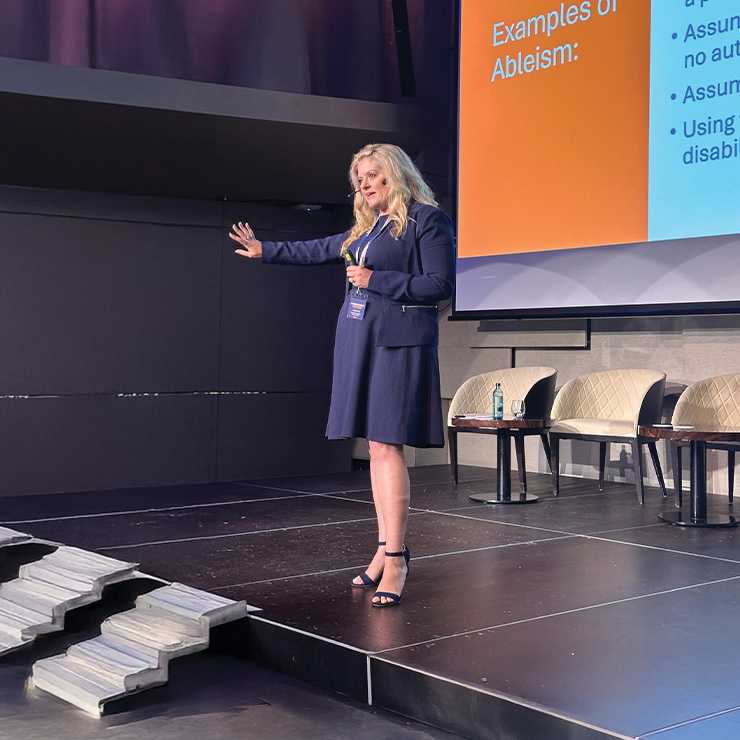
Within a week, Jenny realised just how much work lay ahead. The press release announcing the new office had gone out, and a long queue of people seeking help formed outside her door. “That’s when the clinics were born,” she explains. “People needed immediate support – there was no central system to navigate disability services.”
From legislative reform to hands-on assistance, Jenny tackled every aspect of disability rights. “My degree still has such meaning in my day-to-day life, it still resonates in my career.” She coordinated with government departments, streamlined services, and introduced new policies. She also expanded her reach internationally, meeting with UK policymakers, including Sir Stephen Timms, Minister of State for Social Security and Disability, to push for Gibraltar’s inclusion in the UN Convention on the Rights of Persons with Disabilities.
In 2023, following a general election, she was invited by the Minister for Equality, to bring her work into the Ministry of Equality, securing a dedicated team to support her vision. “Now, we have a proper disability office with a team who is proactive and wants to support the disabled community,” she says. “If someone needs help, my team is there to guide them through every step – whether it’s benefits, healthcare, or education.”
A global vision with local impact
Jenny’s work continues to evolve. She is currently finalising the private sector portion of Gibraltar’s disability strategy, advocating for accessibility without compromising historical preservation. “Gibraltar is built around a massive limestone rock,” she explains. “We have to find ways to make it accessible without damaging its heritage.”
She is also pushing for better integration with UK disability services, particularly post-Brexit, as Gibraltar has lost access to EU funding. Despite these challenges, she remains optimistic, inspired by other global disability advocates whom she has connected with through LinkedIn:
“LinkedIn has been a massive game changer to stay connected with people – it would have been great if it had been around years ago for me! I've made such great connections. For example, Celia Chartres-Aris, who is a multi-award-winning disabled campaigner, lobbyist, government special adviser. She's a good friend of mine now. She advises the UK government.
“Or linking up with Tiffany Yu, who recently released her book: The Anti-Ableist Manifesto following her TikTok success. It's a big book, she sold thousands of copies in a few days. It's important to link up with these individuals, learn from them and see what you can do.”
Lessons from an unpredictable journey
Reflecting on her path, Jenny has one key message for students and aspiring changemakers:
You never know where life is going to take you. I thought I was going to be an educational psychologist – that was my dream! But look how the journey changed for me.

“You never know where life is going to take you, and sometimes you need to trust the journey and go with the flow. Had I not had my degree, I wouldn't be where I am today.”
She also emphasises the importance of resilience and adaptability. “The message that I want to put out there is that disability isn’t the end of the world,” she says. “You carry on, and find ways to live, to thrive, and to push for change.”
So what’s the next dream for Jenny? Her answer is generous and selfless: “My dream is to make Gibraltar the best place it can be for persons with disabilities.” With her determination and skill, that dream is already on its way to becoming a reality.






